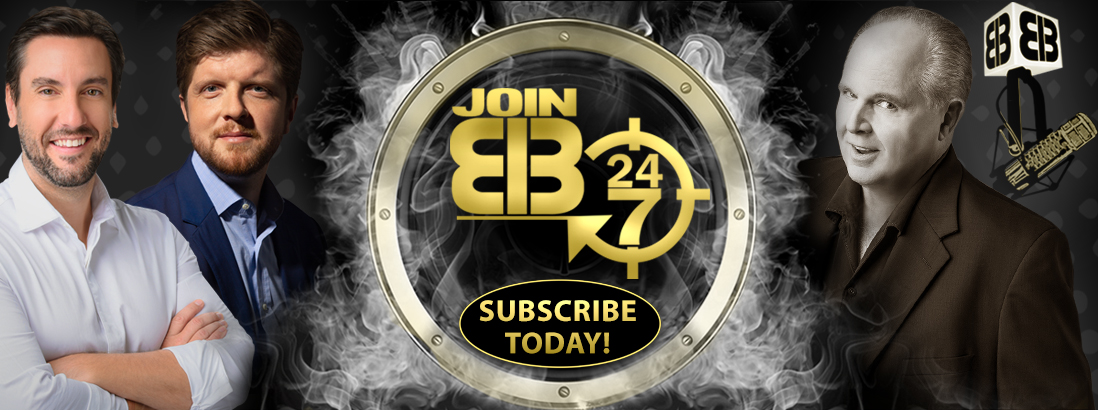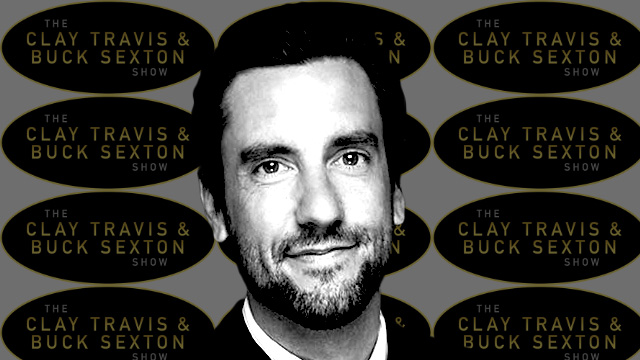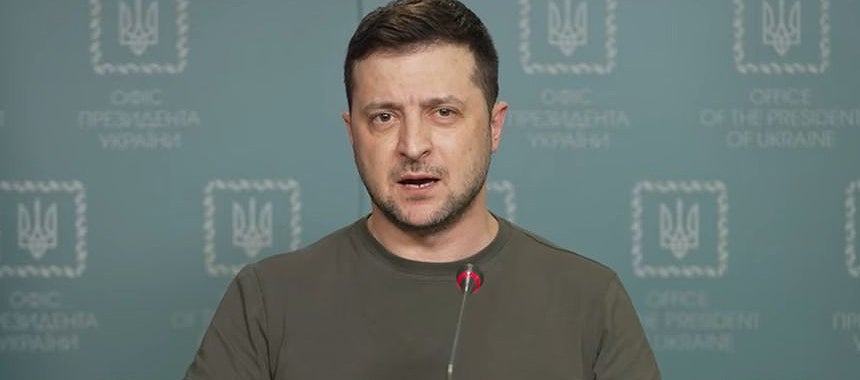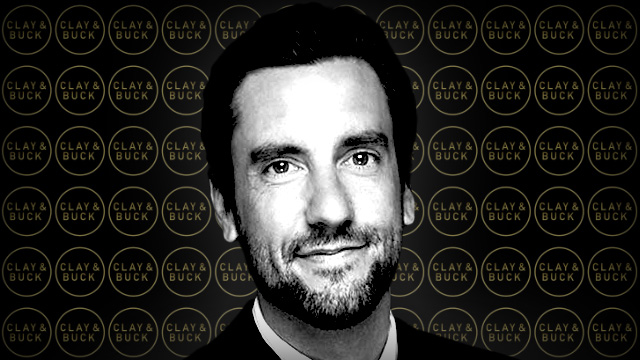Vikki Buckley
13 Dec 2021
Archive [June 1999]
I was honored to speak with Colorado’s Secretary of State, who addressed the NRA convention in Denver in the wake of the Columbine High tragedy:

Rush: The theme of this issue is “great lessons of life.” It’s not oriented toward a particular ideological point of view, as many of the issues are; this is about common sense. And one of the reasons I wanted to talk to you is that your life is obviously devoted to just doing the right thing, being the best you can be.
Buckley: I try.
Rush: That, I think, is the lesson. If I try to focus on anything consistently on my radio program, it’s that. It’s the best recipe for contentment, happiness and success. You exemplify it. People need to be inspired; they respond to inspiration. And you fit the bill.
Buckley: Thank you!
Rush: First, I want to ask you — given that you’re in Colorado, were you by any chance invited by the President to the White House summit on youth violence, in the wake of the Columbine High School shooting?
Buckley: No, I wasn’t.
Rush: Were you surprised?
Buckley: I wasn’t surprised. I’ve never taken the popular road, shall we say.
Rush: But if you had been invited, or if you had a chance to attend any summit focusing on youth violence, maybe not one organized by the President, what would you say? What would be your primary emphasis?
Buckley: Well, in working with the families who were involved in what happened at Columbine High School, in working with the Shoels family so closely, we sat down and said guns weren’t the issue. It’s the hate and the evil that dwells in hearts that pulled the trigger in the violence that went on in Columbine High School.
One of those things we need to realize as parents, as community leaders, and as teachers is we haven’t been listening to our youth. They are the ones standing on those battle lines. We always tell our kids that hard work overcomes adversity, and all the other advice that we give them, and hope they move forward. But even speaking with the Shoels family about things that Isaiah had told them over the last 18 months or so, was that question: Were there signs that they as parents should have tuned into?
Isaiah and his sister came home and said, “Mom, they’re calling us ‘nigger.’ They’re telling us to get out. They’re trying to start fights and things like that.” Their father, Michael, had talked to the school about what Isaiah and Michelle had gone through. The school’s response was along the lines of, Well, they’re kids and kids do those kind of things. So Isaiah and Michelle just decided: “We’ll take the brunt of this, and we’ll deal with it instead of bothering Mom and Dad.”
We as adults need to stop saying “kids will be kids.” We need to stop having the electronic baby sitters. We’ve got VCRs and movies — movies that glorify killings — and all the other things that we’ve decided to pay our kids off with, rather than for us to be parents again and assume those responsibilities.
These are some of the things that I’ve talked to our high school kids about. We as adults have failed them, not only here in Colorado with what happened at Columbine, but at other high schools around our nation.
Rush: Now you referenced Isaiah, but what about the two shooters? Were they also sending signals that were ignored?
Buckley: Yes, from what we’ve been able to piece together. There were kids in this “trench coat mafia” at the school who were really dressed inappropriately. I have an employee on my staff whose daughter goes to that school, and she says this has been going on for quite a while. For a principal to say, “I never noticed it”…? I find it very strange that they didn’t notice it.
All this was planned for Hitler’s birthday. Well, they didn’t wake up on Hitler’s birthday and say: Okay, today’s the day we’re going to do it. For the bombs that were in place, the artillery they used, this was well planned and thought out. They had maps of the school; they had keys to the school.
And you know how kids are, they get this pride thing, and start dropping hints: “We’re not going to be taking this much longer.” “We really don’t have to put up with this much longer.” Were some kids going home and trying to talk to their parents? Not only Isaiah but the other children, were they going home and saying, “Mom, there’s really something weird about these kids at school who think they’re really in control. They’re trying to manipulate and run the school.” And did they get, “Oh, well, they’re just kids”? We as adults are nor listening.
Rush: I want to point out something for readers here. We’ve been at this about four or five minutes, and just to back up something Vikki just said, in all of the talk we’ve engaged in so far about Columbine, guns as a cause of what went wrong have not been mentioned. That just illustrates the point that you made at the beginning when you said you don’t think guns were the problem.
Buckley: That’s not the issue.
Rush: It’s evil and hate in their hearts. But you say, and I hear this a lot, that we need to listen to the kids, to listen to the youth, they’re either crying out, they’re sending signals that they obviously want to be listened to. But how do you combine listening to kids with discipline?
Buckley: When we talk about discipline I have to go back to parents again. Are we raising our kids and sending them to school without a value system, without knowing right from wrong? I go back to the electronic baby sitter again — we’ve forgotten our parenting, we’ve forgotten to keep morals alive with our children so they do know right from wrong. This type of hate and evil is learned; the basic value system and the value for human life is not there.
Rush: Amen.
Buckley: There was a discussion a few years ago about children without a conscience. Well, aren’t we back to that same discussion? We keep talking about it, and doing nothing about it. I work with alternative schools which are trying to get kids out of gangs and back into the mainstream. When I talk to them, I find they don’t have a moral system. They really don’t know right from wrong. They have actually flipped the two sides. And they are begging for anybody to listen. A lot of time it isn’t that you necessarily have to do something, it’s just the idea that “You’re there for me, you’re willing to listen to me, if I make a mistake we’re going to work through this mistake, we’re going to rectify it. There are consequences for my actions, good or bad.” We need to bring that back into parenting.
Rush: Exactly — that was my point. We’ve got all these child-rearing experts who say we’ve got to listen to the children —
Buckley: — and most of them don’t have kids!
Rush: Right. And many adults have translated “listening to kids” to mean let the kids tell us what they want to learn, let the kids tell us when they want to go to bed — instead of saying, No, you don’t know anything, you’re a kid; I love you and I’m going to discipline you because I love you, and here’s what’s right and here’s what’s wrong.
Buckley: I have three sons that I raised by myself, and when I’d discipline them, they’d say, “Mom, you’re not supposed to do that — you know, we can call and we can be taken out of the home.” And I’d say, “Upstairs in the attic, the blue bags are yours, you go on and you pack them. And go ahead and dial, and tell them you’ll be sitting on the porch waiting for them to come get you. Because you really need to go where you’re happy, and I can see this is not it.” And then they would run around and say, “Maybe it’s not quite that bad.”
They called me “Sergeant Buckley” for years. But that was the way I raised them. They’re not doing all the things I think they should be doing now, but they’re decent citizens, they have good jobs, they’re not on the street corner selling dope. They do know right from wrong — and they also know that the decisions that they make in their lives, they have to deal with them.
My 22-year-old told me that he was amazed that this Columbine tragedy had not happened sooner. Colin’s been out of school for the last five years or so, and he said that he could see this kind of thing simmering when he was in high school himself. But then I was one of those parents who lived at the schools. I would take my vacation and I actually attend classes with my sons. I would approach the teachers and say, “You know, my kids have 3,000 friends in this school. They need you to teach — they don’t need another friend.” The teachers did not like me coming to the school.
Rush: I’ll bet not. But that’s another grand slam. I think that applies to parents, too. Way too many parents in this age have wanted to be friends with their kids rather than parents.
Buckley: They’ve got all their little friends; they don’t need another one. I didn’t want my kids finding mentors outside of their home — I wanted to be their mentor. I wanted their mentors to be their grandfather or their uncle, where the value systems that I was raised on would also be passed on to them. They don’t need to go outside the home to find a mentor. But it’s taking that parental responsibility back.
Rush: Well, that’s hard, Vikki.
Buckley: Not if you want to do it! You just dig in, you burrow in, you realize it’s going to be hard. You know there are going to be many nights you cry yourself to sleep, there are going to be many nights you argue, there might be a couple of days you don’t speak. Of course, I made mine speak every morning, “Good morning,” whether they wanted to or not. But it was the decision that I made when I brought my kids into this world that I was going to be the parent, and that’s the way they were raised. And there was never a question in our house who was the ruler.
Rush: The rewards for doing it right are among the finest you experience.
Buckley: Exactly. And I still look at them and say, “I could have done that better,” but hindsight is 20-20.
Rush: Now, you just gave a speech to the hated, reviled NRA in Denver. You said, “Those who would run the NRA out of town need to look at children not being taught the difference between right and wrong.” What’s been the reaction to you? If the election were, say, next week, what do you think your prospects would be?
Buckley: Oh, I think it would be pretty close. There are a couple of counties that I didn’t carry this past election and I still wouldn’t carry — probably lose it by more. But I still think I would win the election. Especially after people actually sat down and thought about what I said, and not who I said it to.
I’ve gotten calls: “Well, we never looked at that aspect of it, that we as parents need to take the responsibility back,” or, “We were blind to something like that happening here in Colorado and we were just incensed the NRA would come here.” My answer is, “Then why are you going to run from the problem? Why don’t you meet the problem, and why don’t you start talking to the problem?” That’s what’s wrong with us now. How have our children seen America handle her problems? Look at Kosovo. Did we just say the heck with it and start dropping bombs? Kids look at all this.
Rush: Good point. There was a lot of contradiction in the President’s own words after Columbine. He said kids need to be taught that they settle their conflicts with words —
Buckley: — but yet we’re dropping bombs every day —
Rush: — as he was ordering another sortie. It was courageous of you to speak to the NRA, because you had the mayor, wasn’t it, asking the NRA either not to come or to shorten their convention time?
Buckley: He basically told them: Don’t come.
Rush: You were, I bet, the only public official.
Buckley: I was the only one who braved those 12,000 demonstrators, and went in anyway.
Rush: Does it frighten you to see the kind of hysteria the public can be worked up into?
Buckley: It does scare me in a sense, because people operate off of emotion instead of logic. Later, the logic hits — but by that time there’s been quite a bit of damage done.
But in what I’ve done over the last 50 years, I’ve just learned how to basically deal with things like this. I feel that I have something to give my country for what it’s done for me and what my family has done.
Rush: As I mentioned, one of the reasons I wanted to talk to you is specifically because of your life experiences. You spent 18 months on welfare bringing up three sons; you got a job as a clerk-typist in the Secretary of State’s office; and now you are the Secretary of State — you’ve been elected twice. I talked about how people want to be and need to be inspired, and there’s no more inspiring story than this. How did you do it?
Buckley: I’ve always been a person who sat down and put goals down — where I want to be today, where I want to be a year from now, where I want to be five years from now. When I got pregnant with my oldest son, I went through a period of about six months of feeling that I wasn’t really worthy of much of anything. I wasn’t worthy of the Buckley name, my father’s name.
Then it just hit me one day: You can’t stay down here. My grandmother had always taught me, No one is ever going to give you anything. If you want something, then you have to fight for it — and sometimes you have to fight your whole life, you never gain it, but it’s the experience along the journey that will help you.
And I decided. Okay, now let me see how the system works. It offered me to go back to school, it offered me to go back and continue the tools that I already had. I wanted to complete architectural engineering — I didn’t get quite that far. But in the meantime, I said, I am not going to stay on welfare. The proudest moment of my life will be to send that check back when I no longer needed it. And I did. I wrote: “No longer needed, thank you anyway.” And that was the greatest day.
Rush: I’ll bet.
Buckley: I got hired with the state. What I went into first was helping under-educated and parolees once they got up on their feet. That helped boost me along the way, and I got transferred here to the Secretary of State’s office. Working so closely with the laws, and learning to write briefs, and working with the transition teams of the three secretaries of state I was under, I thought: I can help them in the transition, I can write briefs better than any attorney I know. Why not do it?
My kids were out of high school, out of college. I sat down and said, “This is chapter two of Mom’s life. I think I’m going to do it — what do you think?” They thought it was fine. I said, “A lot of Mom’s past will come up, and things that people don’t know they will now know.” They said “Mom, we don’t care. We’ve made it, you’ve made it, why not?” I said, “Okay, if my story will help along the way, then I’ll tell it, and I’m going to run.” And I did.
Rush: Now, you make it sound simple: “And then I decided to run and I won.” But there’s more to it than that. Getting votes is difficult. There had to be a lot of good political instincts that served you well.
Buckley: Being raised on a farm during the summertime — we thought it was fun, we didn’t know we were just cheap labor being shipped to my grandmother’s farm — meant that when I travelled around the rural areas of Colorado I could talk about clipping pigs and milking cows, pigs and waste water, and land issues that affect us in Colorado. So it wasn’t just dealing with what I call the metroplex — Denver and the little buffy areas — it was actually getting out there, talking to the farmers.
I think working on a lot of the transition teams helped me as far as the political side was concerned. But what I found mostly was if I could sit down with somebody one-on-one and really talk about issues that affected them, from their kids on up, that’s really what pulled me together a lot with a lot of people.
I still have people who were kind of disappointed in some of the things I did my first term. And I would just flat out ask them, What did I do that you didn’t like, and what can I do to make things better for you? I’ve tried to take all the suggestions I got that were logical. I don’t use tax money. I operate this office on the money that I take in, and make it a better office for citizens in Colorado — because most of them have no idea that they’re even affected by the Secretary of State’s office in any manner.
Rush: That’s why I think you’d probably win as many elections as you’re allowed to run in, if you want to. You’ve made that office as high-profile as the governor’s office, or close to it. That’s amazing, because statewide offices like that are not well understood by voters.
Buckley: Right, they really aren’t. Then they were amazed to find out — because the media kept it suppressed for so long when they were doing the six-month badgering of me, they forgot to tell the people — that even though she may not have done everything correctly she still returned $9 million back to the general fund.
Rush: What did the media badger you about?
Buckley: Because I didn’t have time to speak to them. I didn’t really start campaigning until six weeks out from the election. There was an issue that I had a large turnover of employees. I only ask for a day’s work for a day’s pay; if you can’t give me that, then let me help you find someplace where you need to be. I did, on quite a few occasions, help them along their way. Because of that, I actually rolled up my sleeves and became a clerk typist down in elections and had to help. The media was very incensed by that, here I was Secretary of State, and if a customer came in they would actually be waited on by me.
Rush: That incensed them?
Buckley: Yes, because I was actually hands-on working with the public. And of course the interviews from ex-employees went on forever.
Rush: What about your party affiliation. Republican? I’m sure they zeroed in on that.
Buckley: They are not Republican people, so that didn’t help any. I didn’t have any endorsements from the papers in Colorado at all. My Democrat opponent got them all. I was 27 down in the polls … and I won by a larger margin than our governor.
Rush: See, there’s a lesson there too — not just for politicians, but for kids as well. Kids look at media today and come up with a jaundiced view of what popularity means. It means 15 minutes of fame, it means whatever it takes to get on TV, whether it’s good or bad, the Springer show or whatever. But here you got elected without being popular in the media. It says that quality will jump out and stand above all the hype of the media. That I think is a great lesson.
Buckley: As my grandmother used to say, cream always rises to the top.
Rush: I call certain politicians who take a tragedy like Columbine and use it to advance their own particular agenda, “political ambulance chasers,” and you’ve had plenty of them out there.
Buckley: Of course.
Rush: They’re going to move on to exploit other issues, but the Columbine incident will still be in the minds of people in Colorado. What do you think the lasting impact of Columbine is going to be, not just on the local community but the state as well?
Buckley: I’ve been working with the families, and the devastation is every day. I know when this first started out, even when I first started contacting the parents, I was one of the first who did. The victim assistance office had, but nobody had really reached out and asked, What can we do? There were so many parents and relatives trying to get in here for funerals. And once we had all those things ironed out, the politicians decided, Let’s go out and shake hands now. Let’s show up at the memorial.
You can even see that the talk has minimized now, and with the summit at the White House, is this just another PR campaign that’s going to last for a month? Why do we have a secret meeting, and why isn’t everybody included at the table? Nobody is going to have a true dialogue — let’s just sit and pass around the cucumber sandwiches and tea. I think that’s probably why I wasn’t invited.
Rush: Coffee. Coffee at the White House.
Buckley: Yeah! But by Thanksgiving you will see this issue almost disappear. Meanwhile, the community is just trying to become a phoenix and rise itself up, without a whole lot of help from those politicians. That’s the sad part about it, they will have moved on to other things, they will have moved back to “improving Colorado’s highways.”
Rush: Having milked it for all that they can get out of it.
Buckley: Yes. And that’s a shame, because the hurt and the anguish and the “I don’t know why” questions are unanswered, and will probably never be answered. I talked with the Shoels family today. She called me today and asked, “Vikki, I just want to know why” I said, “ Vanda, there’s not going to be an answer in this life for the why you want. But the grave can’t take the memories. Each one of us has a mission. Isaiah had his, now he’s left you with yours to speak out; don’t let yourself be silenced.” And to the Scott family I say: Rebecca helped get the other children out — she went back in and got killed trying to get them out. Why did she go back in? Because you taught her to care about other people. We look at how we teach our children and you can be proud of the foundation, the things that we don’t ever think they grasp, and they do.
But the tough questions I can’t answer for them, I can just look at them and hold them. Maybe I’m not as busy as everybody else, I don’t know, but I get involved in the human spirit, and that’s what I will always do. That’s why I was told that I wouldn’t be the hard-core politician I need to be. But if being hard-core means that you don’t care about the human heart, then I will never be one.
Rush: I think it’s courageous to tell them you don’t have the answers; that’s rare too.
Buckley: You can’t have an answer why somebody takes your child.
Rush: You’ve worked with homeless kids and gang members. What do you tell them about how to succeed in this country?
Buckley: One of the things I talk to them about is my life experience. You really have to use their language, you have to come down to their level. I haven’t always been a perfect person, so I can speak to them in exact terms just like they do to me. They actually go into shock: Here’s this woman sitting in a suit who’s cussing us out. But that’s the way for us to begin the communication. That’s how I found out that it wasn’t necessarily that they wanted to be in that gang, but nobody else cared about them. Nobody else cared if they breathed: “All I have to do, Vikki, is go out there and maybe mess up a couple of people and then I get my first stripe in my army, which is called doing your number, and then I can get my colors — and then I belong to something.“
Rush: Do they listen to you? Do they consider your advice?
Buckley: I have two who went back and finished college. Another one, my own niece, was my hardest to deal with. I dealt with her for seven years getting her out of a gang. She did do some time in prison, but she’s now raising her son and she has a very good job. But it’s not easy to do. I had to go off the street for a little while. A little boy that I was working with who was nine years old ended up dying of AIDs and it took a toll on me. He was dealing in a park where a lot of the pedophiles are, and that’s how he ended up with AIDs at nine years old. We got hold of his parents and they said, We don’t care — he has a sickness and he’s not bringing it back here, so just let him die wherever he is. I don’t understand that. When he died we had to bury him in the indigent cemetery because the parents would not even take the body back.
Rush: Heartbreaking. You obviously are a selfless individual to devote so much time to what so many people would consider to be lost causes.
Buckley: But you never know when we need somebody to help our kids. I have three sons. I don’t know if tomorrow somebody’s going to have to help one of them.
Rush: But it’s got to be very rewarding for you.
Buckley: It’s hard, but when I see them do good, that’s enough.
Rush: I’m sure you saw The Wall Street Journal article that dubbed you “a new political star.” Do you have any political aspirations beyond Secretary of State of Colorado?
Buckley: I really haven’t thought that far ahead. I want the Republicans to take back the White House in 2000 and then I want to decide what I want to be when I grow up.
Rush: All we’ve got to do is get your voice amplified beyond Colorado and this party may be able to bring itself back to majority status. So don’t go anywhere; don’t switch parties.
Buckley: I’m not switching! No, I am a Republican to the bone; they are stuck with me.
Rush: No, they’re blessed to have you.
Recent Stories

De Blasio Imposes Vaccine Passport Mandate In NYC test
This is an excerpt that Jaime updated. ffffffffffff

Buck Draws Heat For Speaking Truth About Simone Biles
I just wanted to establish what the current president was saying back on ABC News in March to George Stephanopoulos about his feelings on Governor Cuomo.






